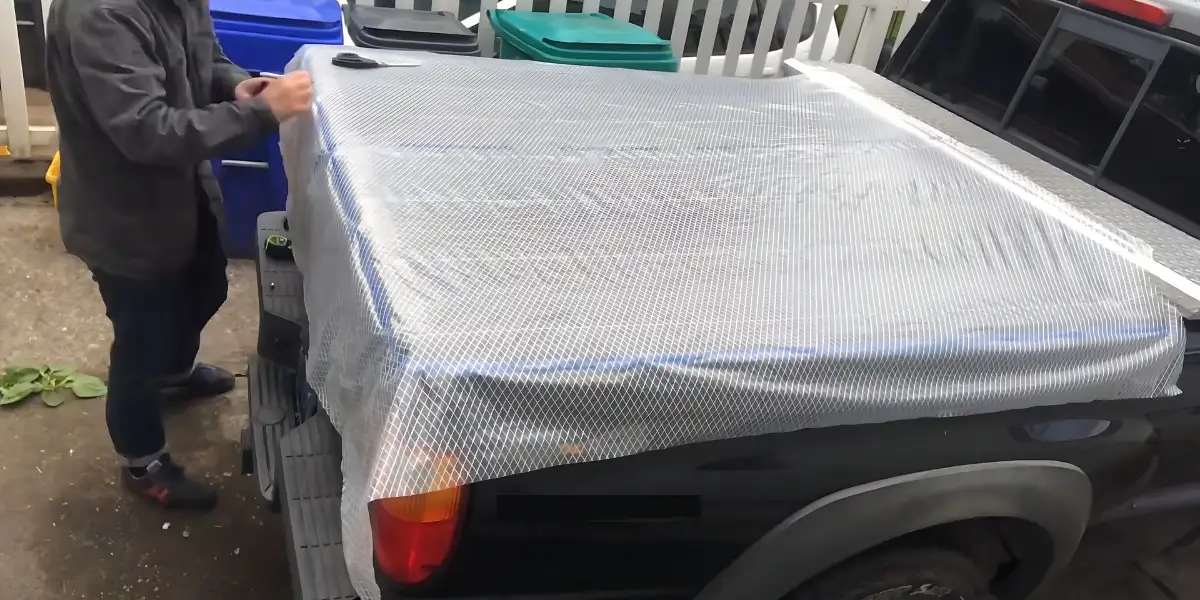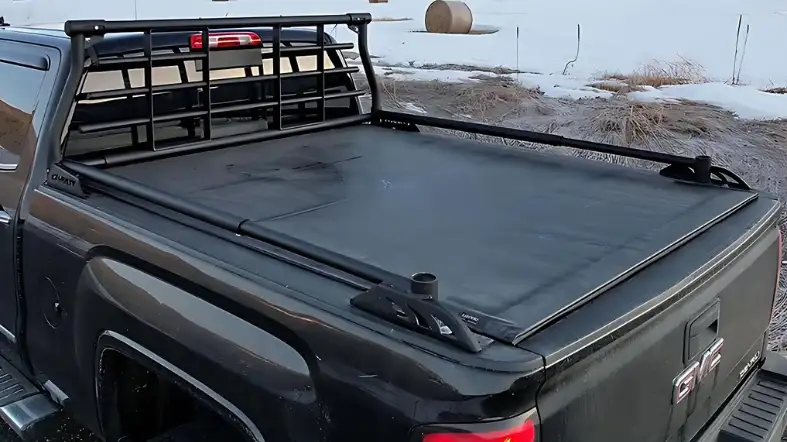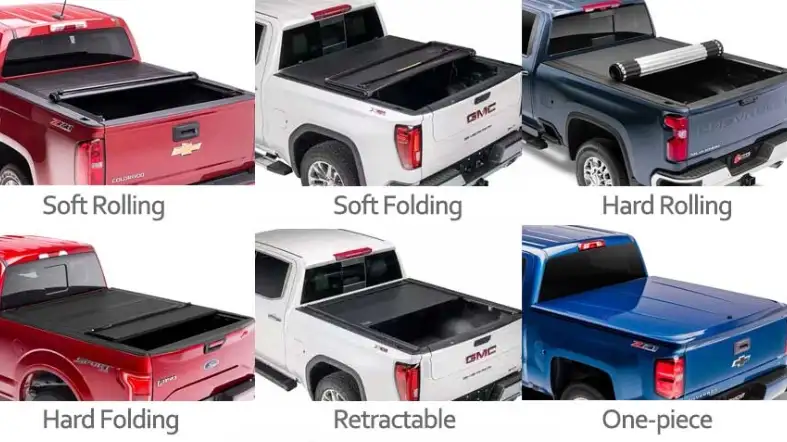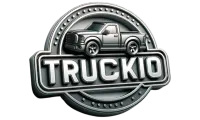Looking to uncover the mystery behind tonneau covers? Ever wondered how these practical accessories are made?
Get ready to dive into the world of tonneau cover manufacturing as we unravel the process behind their creation.
From the choice of materials to the various types available, we’ll explore every aspect of crafting these essential truck bed covers.
Curious to know more? Let’s embark on this journey and discover the secrets of how tonneau covers are made!

How are tonneau covers made?
Step 1: Design and Conceptualization
The first step in creating a tonneau cover is the design and conceptualization phase.
Expert designers and engineers collaborate to develop innovative and functional designs that cater to different truck models.
Factors like aerodynamics, durability, and ease of use are considered during this stage.
Step 2: Material Selection
Next, careful consideration is given to selecting the right materials for the tonneau cover.
Common materials include vinyl, aluminum, fiberglass, or a combination of these.
Each material offers unique characteristics, such as weather resistance, lightweight construction, or enhanced security.
Step 3: Cutting and Shaping
Once the materials are chosen, they are precisely cut and shaped according to the design specifications.
Advanced cutting tools and machinery are utilized to ensure accuracy and consistency in the process.
This step involves precision cutting of panels, rails, and support structures.
Step 4: Frame Assembly
In this stage, the frame of the tonneau cover is assembled. Whether it’s a soft roll-up cover or a hard folding cover, the frame is constructed to provide stability and structural integrity.
It may involve joining aluminum or steel components using welding techniques or secure fastening mechanisms.
Step 5: Attachment Mechanisms
Tonneau covers need to securely attach to the truck bed to provide a tight seal and prevent any movement during transit.
Different attachment mechanisms are employed, such as clamps, hooks, or rail systems.
These mechanisms ensure a snug fit while allowing for easy installation and removal.
Step 6: Fabrication of Cover Material
If the tonneau cover includes a soft cover material, this step involves the fabrication of the textile component.
Manufacturers utilize specialized sewing machines and techniques to create durable and weather-resistant covers.
Reinforcements and seals are added to enhance overall performance and longevity.
Step 7: Finishing Touches
Once all the components are ready, the tonneau cover goes through meticulous quality checks and finishing touches.
This includes ensuring smooth operation, proper alignment, and applying protective coatings or finishes.
These final touches not only enhance the aesthetics but also improve the durability and resistance to elements.
Step 8: Quality Control and Packaging
Before the tonneau cover is ready for market release, it undergoes stringent quality control measures.
Every aspect, from functionality to appearance, is meticulously inspected to ensure it meets the highest standards.
Once approved, the tonneau cover is carefully packaged, and ready to be shipped to distributors and retailers worldwide.
What Are Tonneau Covers Made Of?

When it comes to tonneau covers, the materials they are made of play a crucial role in their functionality, durability, and overall performance.
Vinyl
One of the most prevalent materials used for tonneau covers is vinyl. Vinyl tonneau covers offer excellent protection against the elements while remaining affordable.
They are typically constructed from a heavy-duty vinyl fabric that is resistant to water, UV rays, and mildew.
The vinyl material is often reinforced with support bars or frames to maintain its shape and provide added strength.
Vinyl covers are relatively lightweight and easy to install, making them a popular choice among truck owners.
Aluminum
If you’re seeking a tonneau cover that combines strength with a sleek appearance, aluminum covers may be the perfect fit.
These covers are constructed using lightweight yet sturdy aluminum panels, providing durability and resistance to corrosion.
Aluminum tonneau covers are known for their enhanced security features, as they are often equipped with locking mechanisms to safeguard your truck bed cargo.
Additionally, their smooth surface and aerodynamic design contribute to improved fuel efficiency.
Fiberglass
For truck owners seeking a tonneau cover that offers both style and durability, fiberglass covers are an excellent option.
These covers are manufactured using molded fiberglass panels, resulting in a sturdy and seamless design that seamlessly blends with your truck’s contours.
Fiberglass tonneau covers are highly resistant to impacts, scratches, and harsh weather conditions.
They can be painted to match your truck’s color, providing a customized and polished appearance.
Moreover, fiberglass covers often come with lockable mechanisms for enhanced security.
ABS Plastic
ABS (Acrylonitrile Butadiene Styrene) plastic is another popular material used in tonneau cover construction.
This lightweight and durable material offers excellent impact resistance and weather protection.
ABS plastic tonneau covers are known for their flexibility, making them easy to install and remove when needed.
They are resistant to fading and maintain their appearance over time. ABS covers often come with built-in features such as drainage systems and cargo management solutions, adding convenience to their functionality.
Fabric
Fabric tonneau covers provide a versatile and affordable option for truck owners.
These covers are typically heavy-duty, weather-resistant fabrics such as canvas or polyester.
Fabric covers are lightweight and easy to manipulate, allowing for quick and convenient access to your truck bed.
They are often designed with roll-up or folding mechanisms, providing flexibility in terms of cargo space.
While fabric covers may not offer the same level of security as hardcover options, they excel in their affordability, ease of use, and adaptability.
Different Types of Tonneau Covers

When it comes to tonneau covers, there is a wide range of options available, each with its unique features and advantages. Here we will discuss different types of tonneau covers.
Roll-Up Tonneau Covers
Roll-up tonneau covers are popular for their versatility and ease of use.
These covers consist of a flexible material, such as vinyl or fabric, which rolls up towards the cab of the truck when not in use.
They are secured in place using a series of fasteners, providing quick and convenient access to the truck bed.
Roll-up tonneau covers offer excellent protection against the elements and can be easily adjusted to accommodate varying cargo sizes.
Folding Tonneau Covers
Folding tonneau covers offer a balance between security and accessibility.
These covers typically feature multiple panels that fold in a concertina-like manner, allowing you to access the truck bed partially or fully as needed.
Folding tonneau covers are known for their durability and weather resistance. They provide added security by concealing the cargo while offering the flexibility to adjust the cover according to your specific requirements.
Retractable Tonneau Covers
Retractable tonneau covers combine the convenience of roll-up covers with the added security of a hardcover.
These covers feature a series of interlocking aluminum slats or panels that retract into a canister near the cab of the truck.
With a simple pull or push, you can extend or retract the cover, providing quick access to the truck bed.
Retractable tonneau covers offer excellent protection against theft and the elements, making them a popular choice for truck owners seeking a versatile and secure option.
Hinged Tonneau Covers
Hinged tonneau covers provide a classic and durable solution for truck bed protection.
These covers feature single or multiple hinged panels that can be lifted or folded to access the cargo area.
Hinged tonneau covers are often made of sturdy materials like aluminum or fiberglass, offering excellent durability and security.
While they may require more effort to operate compared to other types, they provide reliable protection and can be customized to match the truck’s aesthetics.
Snap-On Tonneau Covers
Snap-on tonneau covers offer a cost-effective solution for truck owners seeking basic protection for their cargo.
These covers consist of a vinyl or fabric material that is secured to the truck bed using a series of snaps or buttons.
While snap-on covers may not provide the same level of security as other options, they are relatively easy to install and remove.
They offer protection against weather elements and are a practical choice for those with occasional hauling needs.
Toolbox Tonneau Covers
Toolbox tonneau covers offer a convenient combination of storage and cargo protection.
These covers are designed to accommodate a built-in toolbox or provide a separate compartment for storing tools and equipment.
Toolbox tonneau covers can be customized to fit different truck models and toolbox sizes.
They provide a seamless and organized solution for truck owners who require secure storage and easy access to their tools.
What Materials Are Tonneau Covers Typically Made From?
Tonneau covers: leather or vinyl?? Tonneau covers are commonly made from either leather or vinyl materials. Leather tonneau covers offer a classic and luxurious look, along with unmatched durability. On the other hand, vinyl tonneau covers are more affordable, easier to clean, and available in various styles. Ultimately, the choice between leather and vinyl depends on your preferences and specific needs.
FAQs
Are Tonneau Covers Made Of Aluminum Durable?
Yes, tonneau covers made of aluminum are known for their durability.
Aluminum panels provide strength, corrosion resistance, and improved security features for your truck bed.
Do Fiberglass Tonneau Covers Offer A Customized Appearance?
Yes, fiberglass tonneau covers can be painted to match your truck’s color, giving it a seamless and customized look that enhances its overall style.
Are ABS Plastic Tonneau Covers Easy To Install?
Yes, ABS plastic tonneau covers are lightweight and flexible, making them easy to install and remove as needed.
They often come with convenient built-in features for added functionality.
Are Fabric Tonneau Covers Weather-Resistant?
Yes, fabric tonneau covers are typically made of heavy-duty, weather-resistant materials such as canvas or polyester, protecting the elements.
What Factors Should I Consider When Choosing A Tonneau Cover?
When selecting a tonneau cover, consider factors such as durability, security features, weather resistance, ease of installation, customization options, and your budget to ensure you choose the right cover for your truck.
Final Words
Discovering the artistry behind tonneau cover production unlocks a world of possibilities for enhancing your truck.
By understanding how tonneau covers are meticulously crafted from materials like vinyl, aluminum, fiberglass, ABS plastic, or fabric, you can choose the perfect cover to suit your style and needs.
Embrace durability, weather resistance, security, and customization options as you embark on the journey of finding your ideal tonneau cover, elevating your truck’s functionality and aesthetics.
